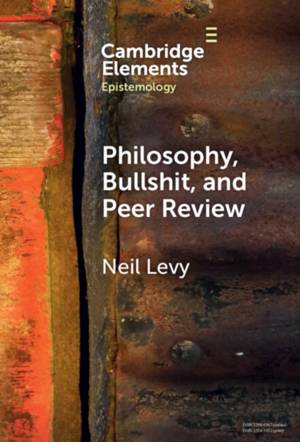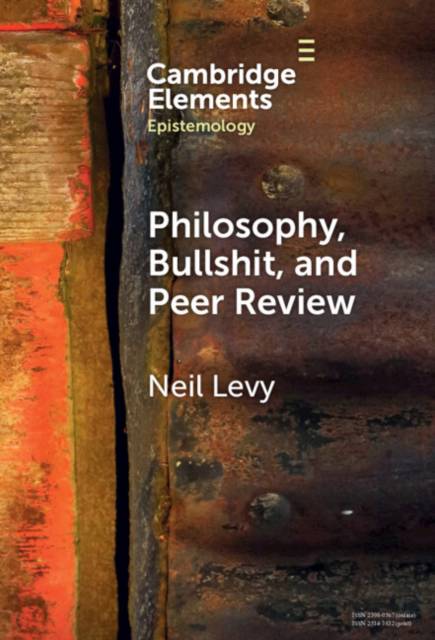
- Afhalen na 1 uur in een winkel met voorraad
- Gratis thuislevering in België vanaf € 30
- Ruim aanbod met 7 miljoen producten
- Afhalen na 1 uur in een winkel met voorraad
- Gratis thuislevering in België vanaf € 30
- Ruim aanbod met 7 miljoen producten
Zoeken
€ 104,95
+ 209 punten
Uitvoering
Omschrijving
Peer review is supposed to ensure that published work, in philosophy and in other disciplines, meets high standards of rigor and interest. But many people fear that it no longer is fit to play this role. This Element examines some of their concerns. It uses evidence that critics of peer review sometimes cite to show its failures, as well as empirical literature on the reception of bullshit, to advance positive claims about how the assessment of scholarly work is appropriately influenced by features of the context in which it appears: for example, by readers' knowledge of authorship or of publication venue. Reader attitude makes an appropriate and sometimes decisive difference to perceptions of argument quality. This Element finishes by considering the difference that author attitudes to their own arguments can appropriately make to their reception. This title is also available as Open Access on Cambridge Core.
Specificaties
Betrokkenen
- Auteur(s):
- Uitgeverij:
Inhoud
- Aantal bladzijden:
- 74
- Taal:
- Engels
- Reeks:
Eigenschappen
- Productcode (EAN):
- 9781009462310
- Verschijningsdatum:
- 18/01/2024
- Uitvoering:
- Hardcover
- Formaat:
- Genaaid
- Afmetingen:
- 152 mm x 229 mm
- Gewicht:
- 272 g

Alleen bij Standaard Boekhandel
+ 209 punten op je klantenkaart van Standaard Boekhandel
Beoordelingen
We publiceren alleen reviews die voldoen aan de voorwaarden voor reviews. Bekijk onze voorwaarden voor reviews.











